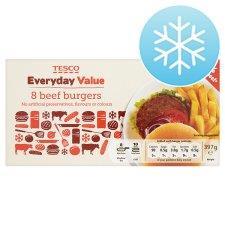The meat industry was left stunned as supermarket chains in the UK and Ireland including Tesco, Aldi, Dunnes Stores and Lidl were forced to withdraw beef burger products after low levels of horse meat DNA were discovered in routine tests conducted by the Food Safety Authority of Ireland (FSAI). The products were produced by two Irish processing plants, Liffey Meats and Silvercrest Foods (part of the ABP Food group) and one in the UK, Dalepak, Hambleton.

Reacting to the news Bord Bia's chief executive, Aidan Cotter said: "I think the beef industry has one of the strongest and most rigours controls in place compared with any food sector in the world today. Given what the industry has been through in the past this comes as quite a surprise and we need to get to the bottom of it as quickly as we possibly can so our customers in the marketplace can understand exactly what has happened and why this won't happen again."In what seems a shockingly spectacular own goal for the meat industry former FSA boss and now group technical director for Tesco Tim Smith was forced into issuing an immediate statement: "We were informed that the Food Safety Authority of Ireland (FSAI) found that a number of beef products they have recently tested contained horse DNA. These included two frozen beef burger products sold by Tesco in both the UK and Ireland. Products sold at other retailers were also discovered to contain horse DNA."We immediately withdrew from sale all products from the supplier in question. We are working with the authorities in Ireland and the UK, and with the supplier concerned, to urgently understand how this has happened and how to ensure it does not happen again. We will not take any products from this site until the conclusion and satisfactory resolution of an investigation."The safety and quality of our food is of the highest importance to Tesco. We will not tolerate any compromise in the quality of the food we sell. The presence of illegal meat in our products is extremely serious. Our customers have the right to expect that food they buy is produced to the highest standards."The relevant authorities have said that these findings pose no risk to public health. We understand that many of our customers will be concerned by this news, and we apologise sincerely for any distress. Our customer service team is standing by to answer any questions customers may have."NFU Scotland communications director Bob Carruth was quick to respond: "The undisclosed inclusion of horsemeat in some value beef burgers damages the reputation of our food industry and must prompt an immediate investigation of supply chains in place at home and abroad."While assurances on the safety of the product have been provided, consumers buying such beef burgers have been seriously misled on the quality and provenance of their food."That is a spectacular own goal for parts of our food sector and doesn't reflect on the fantastic job being done by Scottish beef farmers in providing the market with fresh, tasty, traceable, assured beef."A Silvercrest statement said: “This issue affects a number of burger manufacturing companies in Ireland, including Silvercrest Foods. Following tests carried out by the Food Safety Authority of Ireland, we have been alerted to frozen beef burgers which contain porcine and equine DNA."Although the products pose no risk to public health, Silvercrest has taken immediate action to isolate, withdraw and replace all suspect product. Silvercrest has never purchased or traded in equine product and has launched a full-scale investigation into two continental European third party suppliers who are the suspected source of the product in question.”Francis Mallon, managing director of Liffey Meats said: "Liffey Meats has never produced, purchased or traded any equine products. We do import some raw ingredients as part of our manufacturing process for certain products. As part of their analysis programme with us, the FSAI identified traces of equine DNA in some of these raw ingredients. These ingredients were supplied from an EU approved plant and were certified as from bovine sources only. We now believe that such imported raw ingredients were the ultimate source of the DNA traces found in some of our products."
This story was originally published on a previous version of the Meat Management website and so there may be some missing images and formatting issues.












